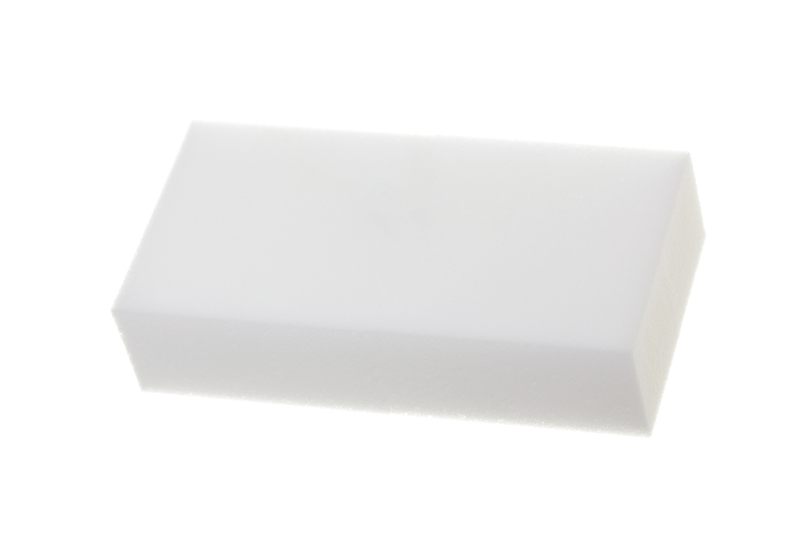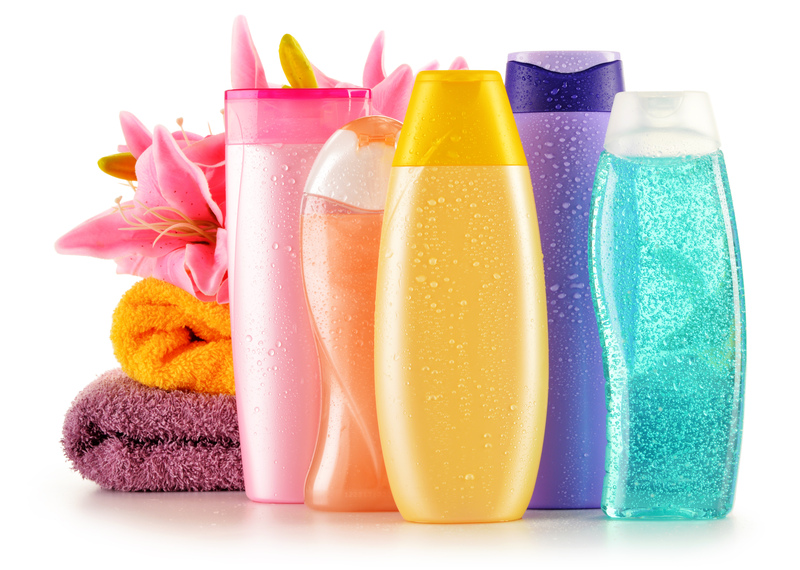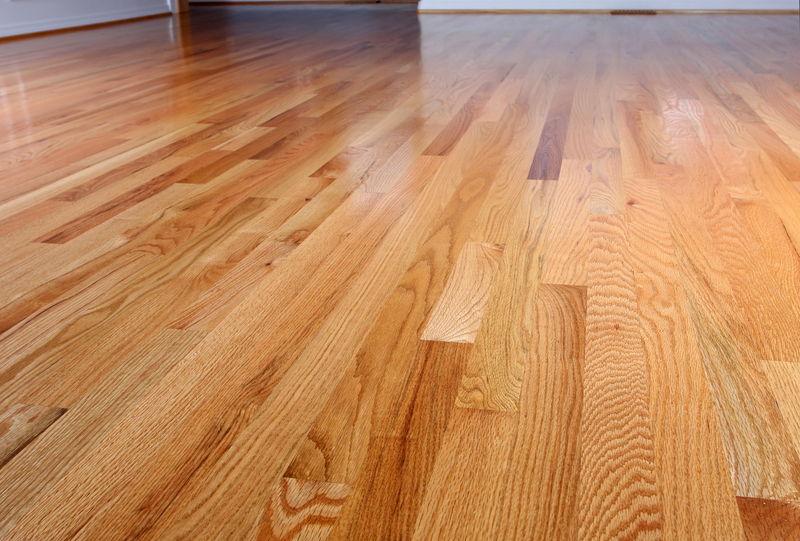Driveway Restoration: Enhancing Curb Appeal and Longevity

Driveway restoration is a crucial process for homeowners aiming to maintain and improve the appearance and functionality of their property's entrance. Over time, driveways can become worn, cracked, or stained due to exposure to the elements, heavy traffic, and general wear and tear. Addressing these issues through restoration not only enhances the aesthetic appeal of your home but also extends the lifespan of your driveway.
There are various methods available for driveway restoration, each suited to different types of driveways and specific problems. From resurfacing and sealing to complete replacement, understanding the best approach for your situation is essential for achieving lasting results.
In this comprehensive guide, we'll explore the different driveway restoration techniques, their benefits, and how to choose the right one for your property. Whether you're dealing with minor cracks or extensive damage, this article will provide the information you need to make an informed decision.

The Importance of Driveway Restoration
Maintaining a well-kept driveway is more than just a matter of aesthetics. A restored driveway can:
- Increase Property Value: A visually appealing driveway enhances the overall curb appeal of your home, potentially increasing its market value.
- Prevent Further Damage: Addressing minor issues early can prevent more significant and costly repairs in the future.
- Improve Safety: A smooth, well-maintained driveway reduces the risk of accidents caused by cracks or uneven surfaces.
Investing in driveway restoration is a proactive measure that safeguards your investment in your property, ensuring that your driveway remains functional and attractive for years to come.
Moreover, a well-maintained driveway can make a positive impression on visitors and potential buyers, reflecting the overall upkeep and care of your home.
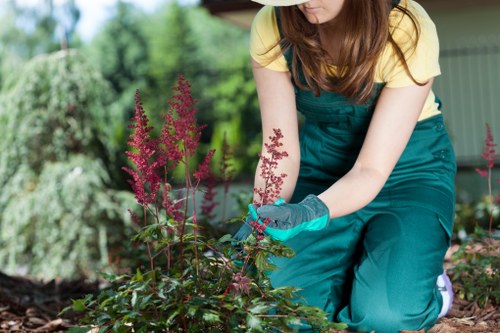
Common Driveway Issues Requiring Restoration
Understanding the common problems that affect driveways can help you identify when restoration is needed. Some of the most frequent issues include:
- Cracks and Fissures: These can result from ground movement, tree roots, or temperature fluctuations, leading to further deterioration if not addressed.
- Staining and Discoloration: Oil spills, tire marks, and exposure to elements can cause unsightly stains that detract from your driveway's appearance.
- Weeds and Moss Growth: These can penetrate cracks and create uneven surfaces, posing safety hazards.
- Surface Wear: Continuous use can wear down the driveway surface, making it rough and uneven.
Identifying these issues early allows for targeted restoration efforts, ensuring that your driveway remains in optimal condition.
Addressing these problems promptly can save you from more extensive and expensive repairs down the line, making restoration a cost-effective solution.
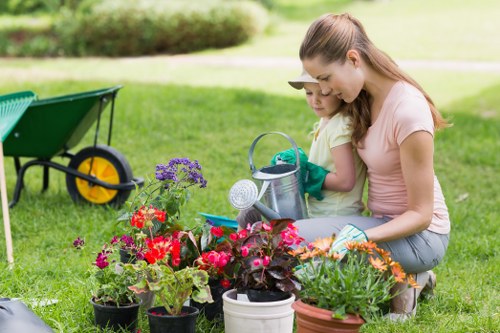
Driveway Restoration Techniques
Several techniques are available for driveway restoration, each with its specific applications and benefits. The most common methods include:
- Resurfacing: Applying a new layer of material over the existing driveway to improve its appearance and durability.
- Sealing: Using a sealant to protect the driveway from moisture, stains, and UV damage.
- Crack Filling: Filling cracks with appropriate materials to prevent water infiltration and further damage.
- Complete Replacement: Removing the old driveway and installing a new one, suitable for severely damaged surfaces.
Choosing the right technique depends on the extent of the damage, the driveway material, and your budget. Each method offers unique advantages, and in some cases, a combination of techniques may be the most effective approach.
Consulting with a professional can help determine the best restoration method for your specific needs, ensuring optimal results.

Choosing the Right Material for Driveway Restoration
The material used in driveway restoration plays a significant role in the longevity and appearance of the finished product. Common materials include:
- Asphalt: Known for its durability and ease of maintenance, asphalt is a popular choice for driveway resurfacing and sealing.
- Concrete: Offers a clean, modern look and is highly durable, making it suitable for complete driveway replacements.
- Gravel: Provides a rustic appearance and is cost-effective, though it may require more frequent maintenance.
- Pavers: Offer a versatile and aesthetically pleasing option, allowing for creative designs and easy replacement of individual units.
Each material has its pros and cons, and the best choice depends on factors such as climate, usage, and personal preference. Understanding the characteristics of each option will help you make an informed decision for your driveway restoration project.
It's also essential to consider the compatibility of the restoration material with your existing driveway to ensure a seamless and durable outcome.
Steps Involved in Driveway Restoration
Undertaking a driveway restoration project involves several key steps to ensure success. These typically include:
- Assessment: Inspecting the driveway to identify issues and determine the appropriate restoration method.
- Preparation: Cleaning the driveway, removing debris, and addressing any structural problems such as large cracks or potholes.
- Repair: Fixing cracks, filling gaps, and stabilizing the surface to prepare it for restoration.
- Restoration: Applying the chosen restoration technique, whether resurfacing, sealing, or complete replacement.
- Finishing Touches: Ensuring proper drainage, smoothing the surface, and adding any desired aesthetic enhancements.
Following these steps methodically ensures that each aspect of the restoration is addressed, resulting in a durable and visually appealing driveway.
Proper planning and execution are critical to the success of the restoration, minimizing the need for future repairs and maintenance.

Benefits of Professional Driveway Restoration
While DIY restoration is possible, hiring professionals offers several advantages:
- Expertise: Professionals have the knowledge and experience to handle various restoration techniques effectively.
- Quality Materials: Access to high-quality materials ensures a longer-lasting and more attractive result.
- Time Efficiency: Professionals can complete the job more quickly and efficiently than most homeowners.
- Warranty: Many professional services offer warranties, providing peace of mind and protection against future issues.
Opting for professional restoration services can lead to superior results, saving you time and potentially reducing overall costs by preventing future damage.
Additionally, professionals can offer tailored solutions that meet your specific needs and preferences, ensuring a customized restoration outcome.

Cost Considerations for Driveway Restoration
The cost of driveway restoration varies depending on several factors, including the size of the driveway, the extent of the damage, and the chosen restoration method. On average, homeowners can expect to spend between $1,000 and $5,000 on restoration projects.
Resurfacing and sealing are generally more affordable options, while complete replacements tend to be more expensive. It's essential to obtain multiple quotes from reputable contractors to compare prices and services.
Investing in high-quality materials and professional services may involve a higher upfront cost but can result in greater durability and lower maintenance expenses in the long run.
Budgeting appropriately and understanding the cost-benefit ratio of different restoration methods will help you make a financially sound decision for your driveway restoration.

Maintenance Tips Post-Restoration
After completing driveway restoration, proper maintenance is crucial to preserve its condition and extend its lifespan. Here are some essential maintenance tips:
- Regular Cleaning: Remove debris, leaves, and stains promptly to prevent deterioration.
- Sealant Reapplication: Reapply sealant as recommended to maintain protection against moisture and UV rays.
- Prompt Crack Repairs: Address any new cracks or damage immediately to prevent further issues.
- Proper Drainage: Ensure that water drains away from the driveway to avoid pooling and erosion.
Consistent maintenance not only keeps your driveway looking its best but also helps prevent costly repairs in the future.
Incorporating these practices into your regular home maintenance routine will ensure that your driveway remains functional and attractive for years to come.

Environmental Considerations in Driveway Restoration
Choosing eco-friendly materials and practices for driveway restoration can minimize environmental impact. Consider the following:
- Permeable Pavers: Allow water to seep through, reducing runoff and promoting groundwater recharge.
- Recycled Materials: Using recycled asphalt or concrete can decrease the environmental footprint of your restoration project.
- Low-VOC Sealants: Opt for sealants with low volatile organic compounds to reduce air pollution.
- Solar Reflective Surfaces: Light-colored materials can reflect sunlight, reducing heat absorption and mitigating the urban heat island effect.
Incorporating these environmentally conscious choices not only benefits the planet but can also enhance the sustainability and efficiency of your driveway.
Eco-friendly restoration options often align with long-term cost savings and improved property value, making them a smart choice for environmentally aware homeowners.

Choosing a Professional Driveway Restoration Service
When selecting a professional for driveway restoration, consider the following factors:
- Experience: Look for contractors with a proven track record and extensive experience in driveway restoration.
- Reputation: Check reviews, testimonials, and references to gauge the quality of their work and customer satisfaction.
- Licensing and Insurance: Ensure that the contractor is properly licensed and insured to protect against potential liabilities.
- Warranty: A reliable service provider should offer warranties on their workmanship and materials.
Taking the time to research and select a reputable professional will lead to better outcomes and a more seamless restoration process.
Don't hesitate to ask questions and request detailed estimates to ensure transparency and alignment with your restoration goals.

Conclusion
Driveway restoration is a valuable investment that enhances the beauty, functionality, and longevity of your property's entrance. By addressing common issues through appropriate restoration techniques, you can prevent costly repairs and maintain a welcoming curb appeal.
Whether opting for resurfacing, sealing, crack filling, or complete replacement, understanding the available options and choosing the right materials are essential steps in the restoration process. Professional services can provide expertise and quality workmanship, ensuring that your driveway remains in excellent condition for years to come.
Additionally, incorporating eco-friendly practices not only benefits the environment but can also contribute to the sustainability and efficiency of your driveway. Regular maintenance post-restoration will further extend the life of your driveway, safeguarding your investment and enhancing the overall value of your home.

